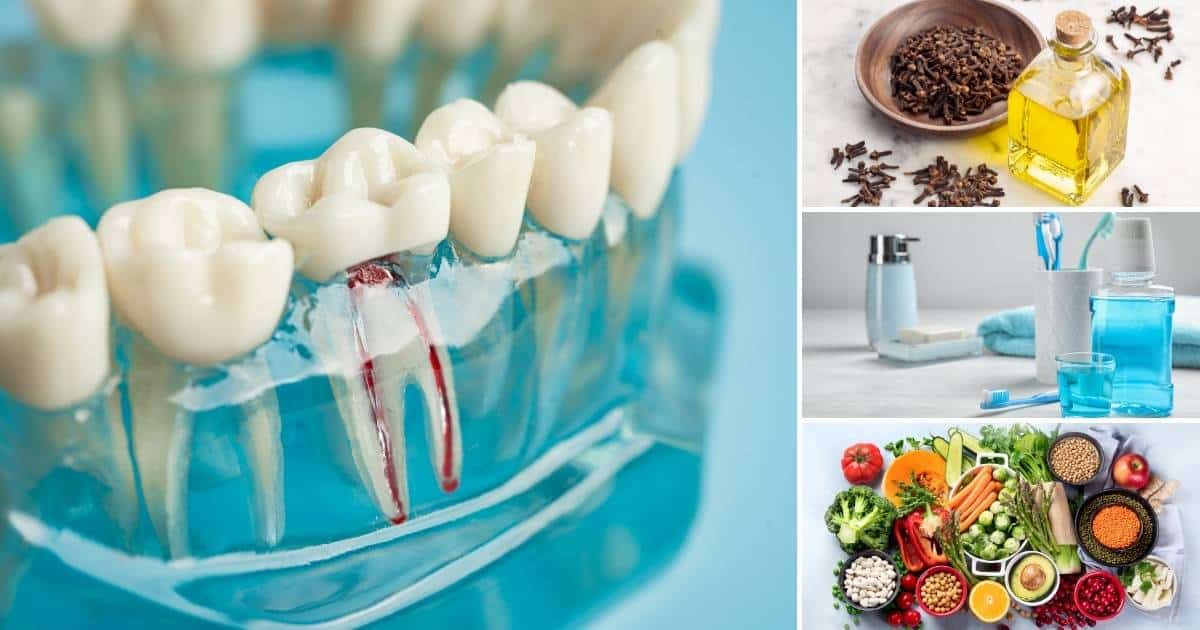Published on October 7, 2024

A root canal can save a tooth and restore your smile, but what happens when complications arise?
Sometimes, gum infections can occur after the procedure, causing discomfort and raising concerns about recovery. If you’re dealing with tenderness, swelling, or redness in your gums post-root canal, you’re not alone. Many people experience these issues, and with the right care, they can heal effectively.
Don’t let a gum infection derail your recovery journey. Understanding the causes and symptoms is the first step to finding relief.
In this blog, we’ll explore seven effective remedies that can soothe your gums and promote healing. From simple home solutions to professional treatments, you’ll find actionable tips to help your gums recover and regain comfort.
Let’s dive in and get you on the path to feeling better fast!
Gum Infections After A Root Canal
A gum infection after root canals in Richmond, VA, can be alarming, especially when symptoms disrupt your recovery. Infections may result from lingering bacteria, improper healing, or other factors that compromise the treated area. Recognizing the early signs of infection is crucial to ensure a smooth recovery.
- Causes: Infections can occur due to pre-existing decay, inadequate cleaning during the procedure, or an untreated crack in the tooth.
- Symptoms: Look out for swelling, redness, persistent pain, bad breath, or an unpleasant taste in your mouth.
- Complications: Ignoring these signs can lead to severe abscesses or systemic infections that require more invasive treatment.
Early detection and professional guidance can help avoid complications and ensure your gums heal properly.
When to Contact Your Dentist?
Knowing when to consult your dentist can make a difference in your recovery. While some post-root canal discomfort is normal, certain symptoms warrant immediate attention.
- Signs to Watch: Severe pain, pus discharge, fever, or swelling spreading to your face or neck.
- Risks of Ignoring Symptoms: Delayed treatment can lead to worsening infections, tooth loss, or even systemic health issues.
- Follow-Up Importance: Regular check-ups help detect hidden problems early and ensure the treated area heals correctly.
Contacting your dentist at the first sign of trouble can prevent complications and keep your recovery on track.
7 Effective Remedies for Gum Infection
Warm Saltwater Rinse
A warm saltwater rinse is a simple yet effective remedy to reduce swelling and kill bacteria. It’s a natural way to soothe gums and promote healing.
- How It Works: Salt helps draw out infections and reduces inflammation.
- Steps: Dissolve 1/2 teaspoon of salt in a cup of warm water. Swish gently for 30 seconds and spit out. Repeat 2-3 times daily.
Antibiotics
When gum infections are more severe, antibiotics play a key role in controlling bacterial growth and reducing inflammation.
- Purpose: Antibiotics help prevent the infection from spreading to other parts of your mouth or body.
- Usage: Always complete the full course as prescribed, even if symptoms improve.
Clove Oil Application
Clove oil is a natural remedy with powerful antibacterial and anti-inflammatory properties that ease pain and fight infections.
- Benefits: It can numb the pain while tackling infection at its source.
- Application: Dilute a drop of clove oil with carrier oil, apply to the affected area using a cotton swab, and rinse after 15 minutes.
Hydrogen Peroxide Rinse
Hydrogen peroxide can disinfect your mouth and fight bacteria effectively when used correctly.
- How to Use: Mix equal parts of 3% hydrogen peroxide and water. Swish gently, then spit out. Avoid swallowing.
- Precautions: Use sparingly to prevent irritation or enamel damage.
Maintaining Good Oral Hygiene
Good oral hygiene is essential for healing and preventing further infections.
- Tips: Use a soft-bristle toothbrush and alcohol-free mouthwash. Brush gently around the treated area.
- Products: Consider using toothpaste designed for sensitive teeth to avoid irritation.
Over-the-Counter Pain Relievers
Pain relievers can help manage discomfort while your gums heal.
- Options: Ibuprofen or acetaminophen can reduce inflammation and pain effectively.
- Guidelines: Follow the dosage instructions on the packaging to avoid overuse.
Dietary Adjustments
Your diet plays a vital role in supporting gum healing and preventing irritation.
- Foods to Avoid: Steer clear of spicy, crunchy, or acidic foods that can aggravate your gums.
- Healing-Friendly Options: Focus on soft foods like yogurt, mashed potatoes, and soups to aid recovery.
How to Prevent Gum Infections After a Root Canal?
Prevention is better than cure, especially when it comes to post-root canal gum infections. Simple practices can go a long way in ensuring your gums stay healthy.
- Hygiene: Brush and floss daily, and avoid harsh brushing that may irritate your gums.
- Check-Ups: Schedule routine dental visits to monitor the treated area and catch any issues early.
- Healthy Habits: Avoid smoking and maintain a balanced diet to promote better oral health.
Frequently Asked Questions
Can gum infections happen even after a successful root canal?
Yes, infections can occur if bacteria remain in the area or due to improper healing.
How long does it take for a gum infection to heal?
With proper care, minor infections typically resolve within a week. Severe cases may take longer and require professional intervention.
Are natural remedies enough, or do I need antibiotics?
Natural remedies can help with mild infections, but antibiotics are essential for severe or persistent issues.
Dealing with gum infections after a root canal can feel overwhelming, but timely care and simple remedies can make recovery smoother. The key lies in staying proactive—monitoring symptoms, following your dentist’s advice, and using safe home remedies to support healing. By combining professional guidance with consistent oral care, you can avoid complications and ensure long-term dental health. If you’re unsure about any symptoms or remedies, don’t hesitate to contact your dentist for expert advice and reassurance.
